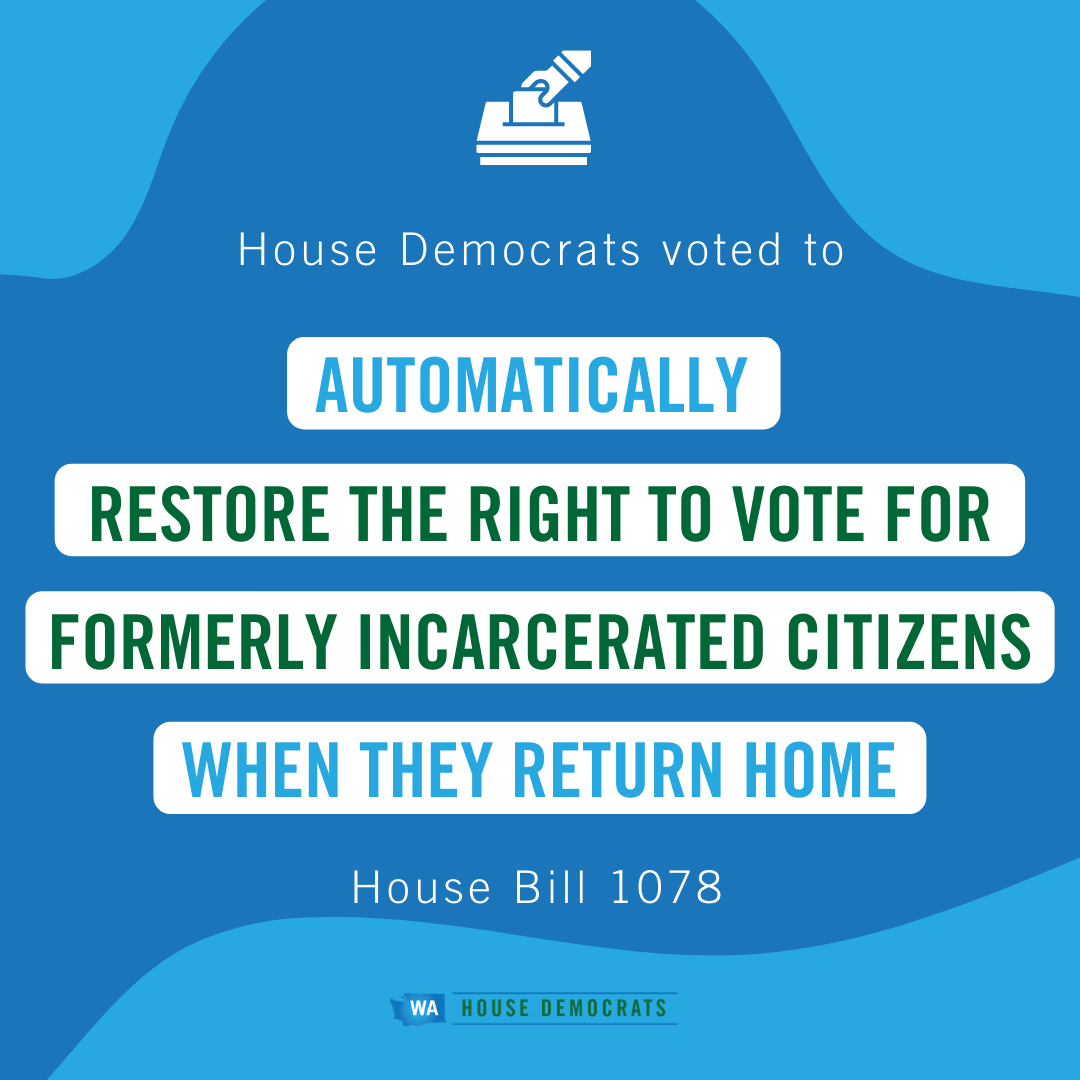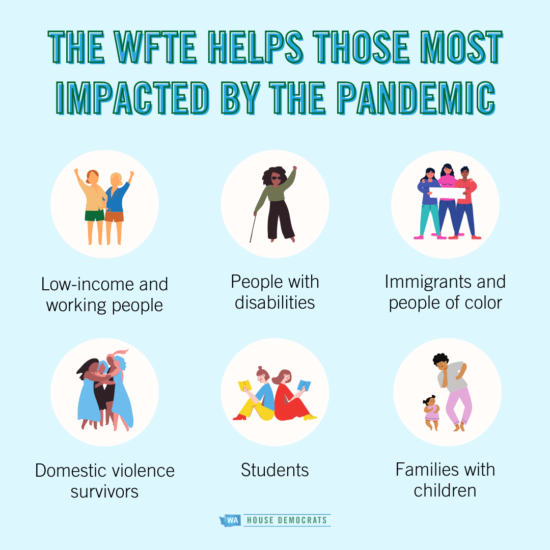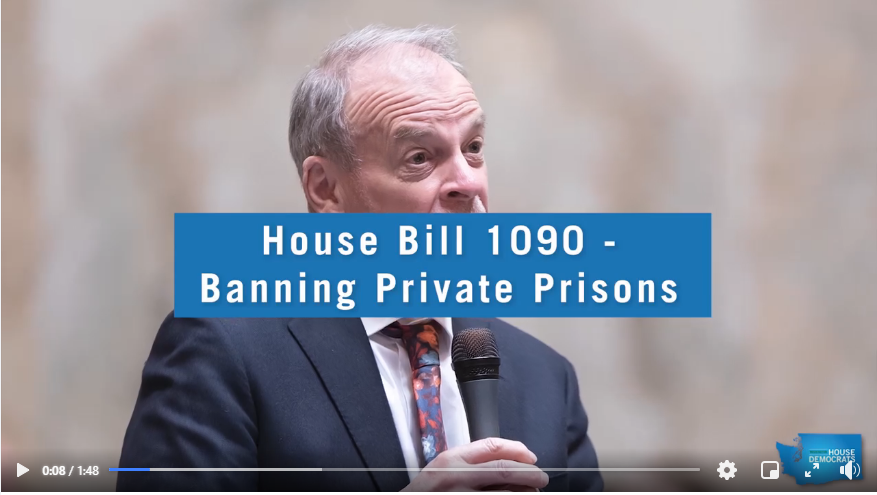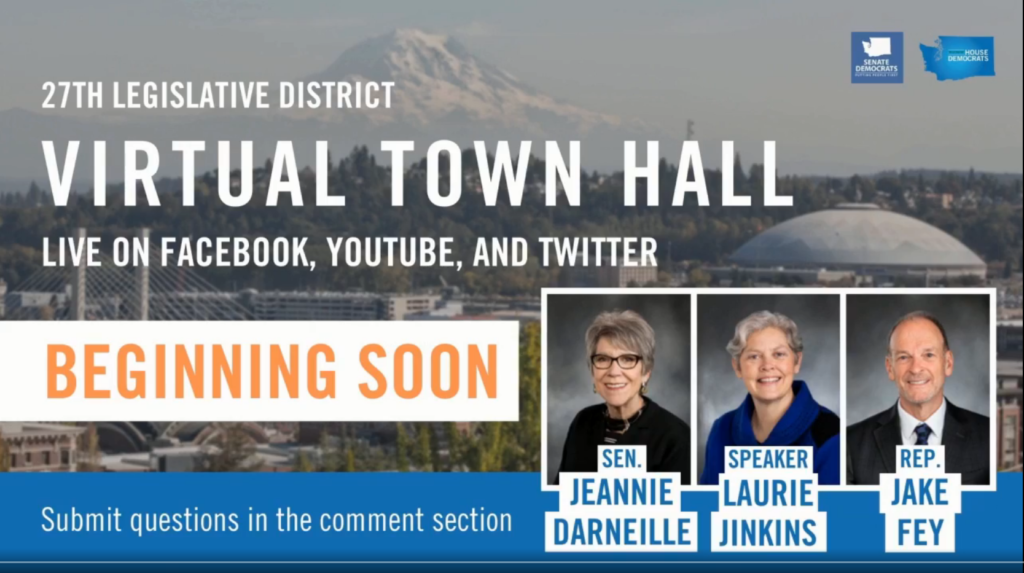Dear neighbors,
We are about two-thirds of the way through the 2021 session and there is a lot of news to report.
The House is now considering 200 bills passed by the Senate, while the Senate is deliberating on about 216 bills that we passed in the House.
In this newsletter, I’ll talk about new legislation that passed.
Soon, both chambers will have introduced proposals for the state’s operating, transportation, and construction budgets. I’ll have a lot more to announce when all three budgets are proposed.
Help for working families
The Working Family Tax Credit (House Bill 1297) is the state equivalent of the Earned Income Tax Credit, which is a popular and proven program.
This legislation will make a huge difference for hard-working families who are struggling during this pandemic. It will also work hand-in-glove with federal aid in the American Rescue Plan which is intended to help working families and the middle class.
I voted yes on this bill, which is now in the Senate.
Banning private prisons
The House voted on legislation to ban private, for-profit prisons like the immigration detention facility nearby.
House Bill 1090 passed and is now being considered by the Senate.
Update on legislation I wrote
So far, three of my bills passed the House before the policy deadline.
Reforming the obsolete land title system
There are five counties in our state still using the slow, expensive, and obsolete Torrens land title registration system. This is bad for consumers. Under the Torrens system, land title registration must go through the courts, which takes more time and expense. A court order involving inheriting land under the Torrens system can cost $1,200 in recording fees alone due to the number of documents.
I wrote House Bill 1376 to make sure all of Washington state uses the quicker, simpler, and cheaper method of registering land titles at county auditor offices. This bill is now in the Senate Housing & Local Government Committee.
Conserving energy
House Bill 1446 is meant to make sure that events beyond the reasonable control of a utility—such as the covid pandemic—don’t cause utilities fall out of compliance with our state’s conservation targets. The Senate Environment & Energy Committee is now considering this legislation.
Fairness in transportation fees
A quirk in the law meant people paid the small standard fee when they use a credit card for the Department of Licensing business related to transportation for things like vehicle registration. But if they did the same thing online, they weren’t charged a fee and the state absorbed the cost, which can be roughly 3 percent of the transaction. House Bill 1115 fixes this loophole so everyone is treated the same.
Restoring voting rights

It’s a relic of the Jim Crow era to link voting rights to criminal justice. Taking away a person’s voting rights was never about punishment—it was about political power, and a tactic that started in the segregated South.
We are one of the only modern democracies in the developed world with laws like this.
I voted for HB 1078 to restore voting rights to formerly incarcerated people because this practice has been used to systematically suppress the votes of entire communities. I believe in honoring second chances and treating our neighbors with dignity so they can become whole again. When people return to our communities to live and work, they deserve to fully participate in democracy without further punishment.
This bill was introduced by Rep. Tarra Simmons (D-East Bremerton), an attorney and registered nurse who was incarcerated at one time. It has now passed the Senate and is headed to the governor’s desk!
Tackling our mass incarceration problem
Washington state’s incarceration rate has doubled since 1980.
Black people make up 4 percent of Washington’s population, but 18 percent of its incarcerated population.
Black people are disproportionally serving longer sentences, making up 25 percent of those serving 15 years or more, 27 percent of those serving extra time for weapons enhancements, and 38 percent of those serving life without parole under the three-strikes law.
Weapons enhancements, which originated from 1995’s Hard Time for Armed Crime Bill, can add six months to ten years for each enhancement if a crime was committed with a gun or other weapon. Multiple enhancements can be stacked on top of one another and they run consecutively.
You cannot earn early release on weapons enhancements.
These sentences were applied unequally and led to extremely disproportionate sentences for many Black men. One man was sentenced to 80 years on weapons enhancements alone.
House Bill 1282 begins to remedy the injustice and give incarcerated people a chance to earn early release on those enhancements through good behavior.
This bill has four main goals:
- Repair the injustice of misguided “tough on crime” policies that disproportionately impacted the Black community.
- Give incarcerated people hope and an incentive for good behavior.
- Simplify our byzantine sentencing system.
- Save taxpayers money by allowing those who have EARNED early release to re-enter society.
This bill is at the request of the Department of Corrections.
Virtual Town Hall
If you didn’t get a chance to watch and participate, here is a video of our town hall meeting.
Keep in touch
I hope you found this information useful.
There isn’t enough time to cover every issue, so please get in touch if you have questions, comments, or ideas you’d like to share!




